The
PARTY EMPIRE
SAGA OF A NIGHTMARE


H. YUAN TIEN
Copyright 2015 by H. YUAN TIEN.
Library of Congress Control Number: | 2015903528 |
ISBN: | Hardcover | 978-1-5035-3556-5 |
Softcover | 978-1-5035-4963-0 |
eBook | 978-1-5035-3555-8 |
All rights reserved. No part of this book may be reproduced or transmitted in any form or by any means, electronic or mechanical, including photocopying, recording, or by any information storage and retrieval system, without permission in writing from the copyright owner.
Any people depicted in stock imagery provided by Thinkstock are models, and such images are being used for illustrative purposes only.
Certain stock imagery Thinkstock.
Rev. date: 06/03/2015
Xlibris
1-888-795-4274
www.Xlibris.com
541345
Table of Contents
DEDICATION
The Party Empire - (  ) the title of this book is inspired by a speech made in June, 1956 by Chu Anpin g (
) the title of this book is inspired by a speech made in June, 1956 by Chu Anpin g (  ).
).
Earlier, in 1945, I had come across his name for the first time. It appeared on the cover of a new weekly, Observer (  ), which he founded in Chongqing, Sichuan province. It was a brand new publication, both in its style and in its soul. I immediately subscribed to it, as did numerous others of my generation. I continued my subscription after its relocation to Shanghai until the Kuomintang banned it in late 1948.
), which he founded in Chongqing, Sichuan province. It was a brand new publication, both in its style and in its soul. I immediately subscribed to it, as did numerous others of my generation. I continued my subscription after its relocation to Shanghai until the Kuomintang banned it in late 1948.
I had never met Mr. Chu in person, having only corresponded with him when he accepted an article of mine while I was a college student in Oskaloosa, Iowa.
Though The Observer lasted less than three short years, its impact proved enormous and deep-reaching and long. It mobilized the energies and endeavors of old and young readers alike just prior to the establishment of the Peoples Republic of China in 1949.
Thereafter, however, thousands of people became trapped in a nightmare of wanton purges. Chu Anping, moreover, remains to this day one of the handful persons still not exonerated. His 1956 speech evidently had proved an unpardonable travesty in the eyes of the Party Em pire.
This book is hereby dedicated to Chu Anping, a significant figure who should not be swept into the dustbin of history. I have donated all back copies of Observer to the Library of the Nankai University in Tia njin.
A LL PEOPLES have their share of brutal rulers. The longer their history, the more numerous such notorious rulers they have inevitably witnessed, and the greater the diversity of their pitiless behavior. Chinas encounter with such ordeals began in antiquity and continues into the modern era.
Jie, a.k.a. Gui (? B.C. ~ 1500 B.C.), was the last ruler of Chinas Xia Dynasty. He reigned 53 years. Amid natural calamities and heavy military expenditures for wars waged against neighboring peoples, he erected his Night Palace of Infamy. In its luxurious swimming pool, Jie, along with a huge entourage of women and men, would indulge in festivities 24/7, and all-out merrymaking an entire month at a time. Meixi, his favorite concubine - a gift of homage presented to him by a neighboring tribe - was quartered in a jeweled palace that featured ivory corridors and a bed carved from jade. He spurned the advice of all his top officials, boasting: The Sun shines in the sky! Only when the Sun expires will I die!
Whether or not Jie had actually been such a wayward monarch has been in dispute. Some historians have argued that their early counterparts merely sought to create a scathing image of a typical cruel and decadent ruler to alarm the generations to come, inspiring them, thereby, to be on guard against the rise of any other such potential errant ru lers.
After Jie, and toward the end of the Shang Dynasty (c. 1500-1000 B. C.), which followed the Xia, Yin Zhouwang became the last ruler of this reign. He and his concubine, Tanyi, surpassed Jie and Meixi in their pursuit of self-indulgence and in their brutality towards perceived ene mies.
Yin Zhouwangs favorite concubine of the time, Tanyi, maneuvered to eliminate Queen Jiang, whose execution was swiftly echoed by that of her two young sons, 12 and 14 years of age. Tanyi had plotted her way to power like the lion in the wild that typically kills the cubs of a female he covets to eliminate the other males genes and to put her back into est rous.
Under Tanyis instigation, Yin Zhouwang also instituted such tortures as Hammering, Scorpion Bowl, and Paoluo . Torture through hammering needs no elaboration. Scorpion Bowl referred to the dumping of persons naked into a huge deep hole crawling with scorpions. Paoluo consisted of laying a copper column across an open fire-pit over which high officials in disgrace were compelled to crawl. Invariably they fell from the heated column to their deaths b elow.
Allegedly, Tanyi got a kick out of watching such proceed ings.
However, Tanyi had been given the benefit of the doubt, for she was purportedly - either a nine-tailed fox in human form, or shed been possessed by such a nine-tailed fox demon while being escorted from her place of origin to the palace. Either way, the originally benevolent and merciful young lady of sixteen had, somewhere along the line, transformed into a greedy, jealous, ruthless d evil.
Distortions, exaggerations, and fabrications permeate the annals of Chinas history. But the noteworthy and irrefutable fact remains that both Jie and Yin Zhouwang were the terminal rulers of their respective dynas ties.
There are, of course, and more importantly, first rulers of various eras who were likewise cruel, covetous and callous. Conspicuously among them were Zhu Yuanzhang and Qin Shih uang.
Zhu Yuanzhang (1328 ~ 1398) emerged as the first emperor of the Ming Dynasty. Born into a peasant family, he joined in - and successfully consolidated - peasant revolts already in progress toward the end of the Yuan Dynasty. There had been numerous peasant revolts recorded throughout the long span of Chinas existence, but Zhu Yuanzhangs triumph was the only truly peasant-to-emperor feat to grace the annals of his tory.
But let the truth be told: to be in the company of this Emperor was akin to cavorting with a tiger. Following his ascension to the throne, Zhu proceeded to consolidate all powers into his own hand. All his comrades-in-arms - they whod been essential to his successful establishment of the Ming Dynasty he put to death. Simultaneously, he decreed that all migration of the masses was prohib ited.
Zhu Yuanzhangs rule proved to be economically disastrous even though hed risen up from among the peasants in Anhui Province in the lower reaches of the Yangzi River and should have had a greater grasp of their talents and n eeds.
During the l930s, some six hundred years later, Zhu Yuanzhang was indicted once more in a popular tune, the New Feng Yang Ballad , which bitterly denounced him:
Recalling Feng Yang! Reminiscing Feng Yang!
A prosperous place Feng Yang had been!!
But with the arrival of Emperor Zhu,
Harvests are poor nine years of ten.
Well-off families eked out a living in new vocat ions;
Stone-broke families sold their childr en!
The beginning of the consolidation of all powers into the hand of an emperor dates from about 240 B.C. under Qin Shihuang (259 ~ 210 B.C.) of the Qin Dynasty. Qin Shihuang was Chinas first ruler who crowned himself Imperial Sovereign: The Shihuang part of the name he took meant: Alpha Emp eror.
Next page
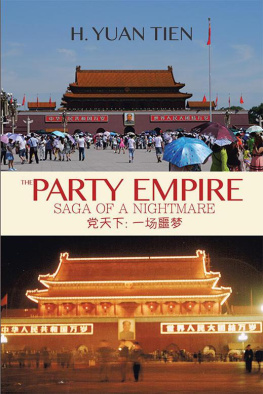


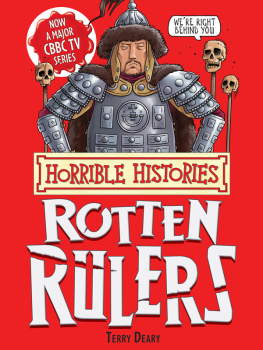

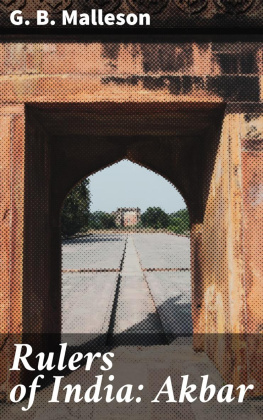
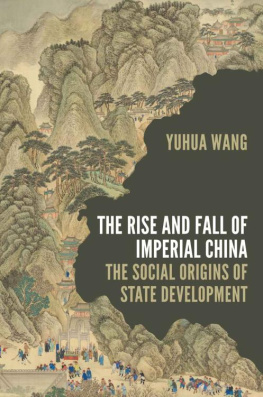

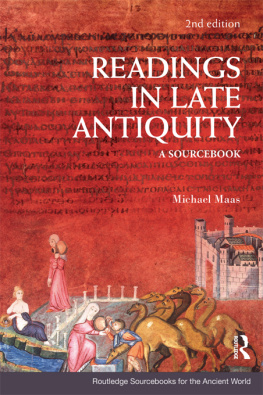




 ) the title of this book is inspired by a speech made in June, 1956 by Chu Anpin g (
) the title of this book is inspired by a speech made in June, 1956 by Chu Anpin g (  ).
). ), which he founded in Chongqing, Sichuan province. It was a brand new publication, both in its style and in its soul. I immediately subscribed to it, as did numerous others of my generation. I continued my subscription after its relocation to Shanghai until the Kuomintang banned it in late 1948.
), which he founded in Chongqing, Sichuan province. It was a brand new publication, both in its style and in its soul. I immediately subscribed to it, as did numerous others of my generation. I continued my subscription after its relocation to Shanghai until the Kuomintang banned it in late 1948.